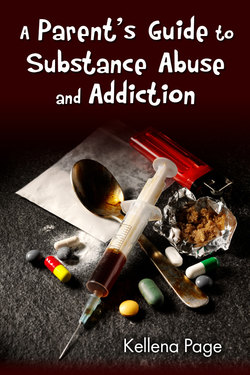Читать книгу A Parent's Guide to Substance Abuse and Addiction - Kellena Page - Страница 9
На сайте Литреса книга снята с продажи.
What happens to the brain when someone becomes addicted?
ОглавлениеDrugs of abuse activate the natural reward centers of our brain; this is why many drugs of abuse are pleasurable when they are first used.4, 7, 13, 16 There are natural rewards, like food, water, and sex that also activate the reward centers of our brain and produces pleasurable feelings.4, 13 These reward centers help ensure our survival.13 If something feels good to us, our brain will tell us to engage in that behavior again, without us even thinking about it.13 Drugs are also much more powerful rewards than natural rewards like food and sex, as they tend to have quicker and longer-lasting pleasurable effects than natural rewards.13 Therefore, drugs can strongly motivate people to use them again and again and trick our brain into thinking that we need drugs in order to survive.13
When someone continues to use drugs, it dulls the natural reward centers in their brain and makes it difficult for them to experience pleasure naturally.13 Drug abusers often feel depressed and lifeless and in order to feel any kind of pleasure, they have to take larger amounts of drugs in order to activate the reward center in their brain.13 This is known as drug tolerance.13 Similar in the way that they cause tolerance, drugs can cause major changes in the brain’s structure and how it functions.7, 13, 19 These changes diminish one’s self-control and ability to make sound decisions, while sending powerful urges to seek out and take drugs compulsively.13 These kinds of behaviors are characteristic of drug addiction.13 Also, because a drug abuser’s brain associates the pleasurable effects of drugs with the environment where they used drugs, certain environments can trigger drug craving and relapse even after years of abstinence from drugs.7, 13, 19
